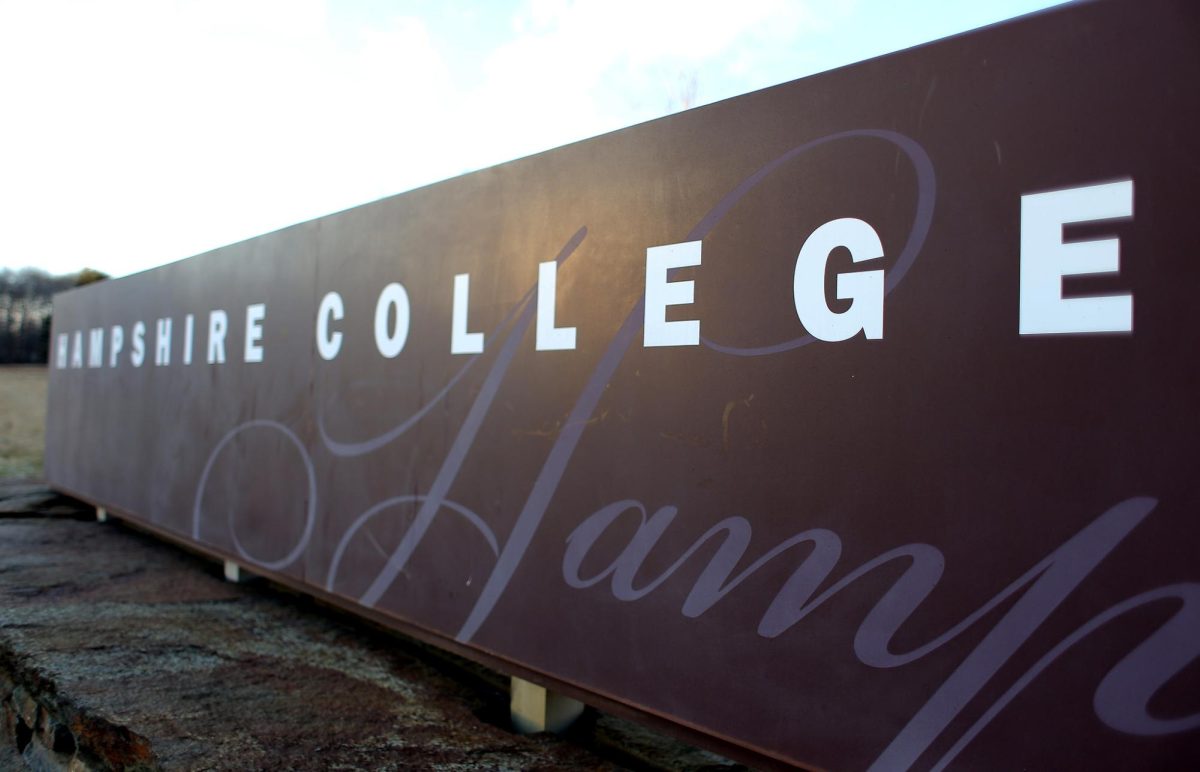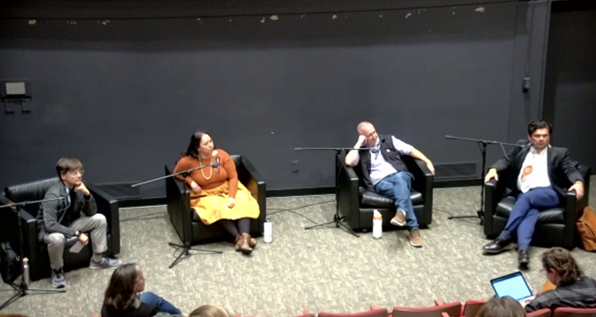
Underneath a Black Lives Matter banner that stretched across the width of South Pleasant Street, police officers, town officials, high school students and local professors stood together, interlocking arms and chanting the same mantra that hung over their heads: “Black Lives Matter.”
The gathering concluded an event held at Town Hall at Monday afternoon, orchestrated by the organization “Coming Together,” the First Congregationalist Church and the Chief of Amherst Police, Scott Livingstone. Approximately 75 community members filled the Town Hall meeting room to hear directly from the organizers on why they felt the raising of the banner was important.
Sid Ferreira, a member of “Coming Together” and director of enrollment and institutional support at the University of Massachusetts, acted as the event’s emcee. He spent the afternoon cracking jokes, slapping backs and shaking hands. However, he always returned to the core message of the day – that a recognition of the Black Lives Matter movement is not about favoritism or anti-police policies, but is a community acknowledgment of due equality.
He opened the event around noon by introducing Dr. Barbara Love, a professor of social justice education at UMass.
Love revisited key points in history where the concept of black lives being less valuable was legitimized to craft an argument that a proclamation of the opposite is still necessary today. She said from slavery, to the three-fifths citizen consideration, to Plessy v. Ferguson – each “codified into law” that black lives mattered less.
She acknowledged the criticism that the movement and phrase can elicit and commented on the motivation behind some denigrating comments.
“[When we say this] this is not a statement about the value of other lives, they’re good people. They’re just confused. This is simply our effort to make a statement at a historical moment,” Love said.
Love said that the increased attention paid to issues of racism or police violence are not necessarily due to a rise in frequency. Rather, the technology available makes injustices more visible to the general public. She said that exposure can lead to negativity and warned against falling into a pattern of divisiveness among the mass population.
Love said that racial harmony is in the best interest of all working class people and in fighting the benefits of those who have the power of wealth in America. Love concluded by describing Amherst as a place where other communities should model themselves after.
“As I was entering Amherst, I could feel myself relaxing, a sigh of relief fell over me. It made me notice how on guard I am when I’m not at home,” Love said.
Ferreira then introduced Livingstone, who he commended for his cooperation and openness to the idea of the Black Lives Matter banner, despite some accusations that the movement is based in anti-police rhetoric.
Livingstone said he honestly expected to have conversation regarding a partnership between police and local civil rights organizations a long time ago. After Ferreira approached Livingstone at a community breakfast in January, he spoke with his officers about how they felt about the idea. He said the reaction was overwhelmingly supportive.
“I think their response speaks volumes about what type of community we have in Amherst,” Livingstone said.
Livingstone commended his staff for their cooperation but reiterated that as an agency, he and his officers are not perfect.
“It’s not for a lack of effort, but just like the people in town, no one’s perfect. The important thing is to strive to be perfect while having these types of discussions,” Livingstone said.
Adriana Turner, the director of Amherst College multicultural resource center, followed Livingstone by introducing Amherst College student Amal Buford.
Buford, a Brooklyn native, said he first got involved in the Black Lives Matter movement as a senior in high school after a grand jury decided not to indict the officers who subdued Eric Garner. Buford asked himself how much he willing to give the movement and urged people to take the personal responsibility to participate.
“It’s very easy to come behind the movement without the committing fully to it. It’s one thing to tweet, it’s another thing to make a bold statement that everyone in town can see,” Buford said.
Ferreira told the crowd to support the youth who are a part of the Black lives Matter Movement because if it wasn’t for the youth “we would not be here.” He also urged the need for patience.
“Some people say they disagree with their tactics, but guess what without a doubt somewhere along the line someone disagreed with you. If we didn’t disagree, nothing would ever change,” Ferreira said.
Brendan Deady can be reached at [email protected] or followed on Twitter @bdeady26.



















David Hunt 1990 • Mar 23, 2016 at 11:57 am
#alllivesmatter
Rob • Mar 22, 2016 at 12:05 pm
Seems like an inappropriate use of public resources.